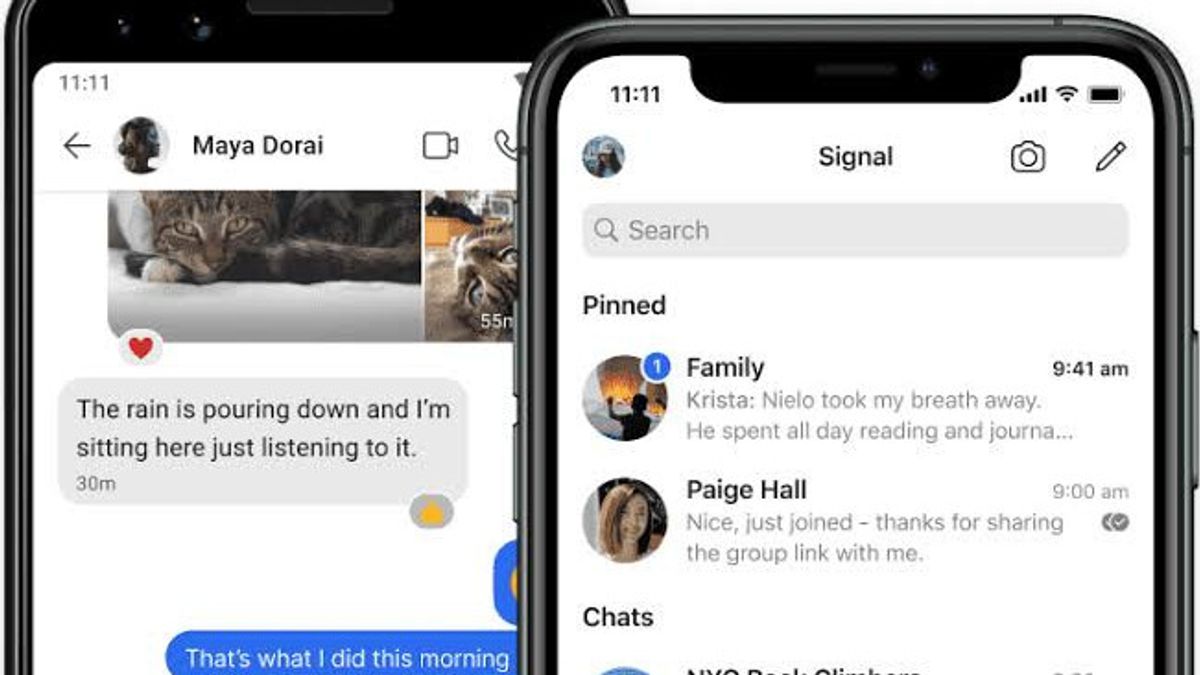Signal insists it will exit and stop providing services in the UK if the new law damages the encryption of the encrypted messaging app.
"Signal will never, never, 1,000 percent will not participate, in any kind of falsification of our technology that will undermine our privacy promises," said Signal CEO
"We will really get out of any country if the choice remains in that country and undermines the strict privacy promises we make to people who rely on us. Britain is no exception," he added.
Whittaker's remarks responded to the online Security Bill (RUU) initiated by former British Prime Minister Boris Johnson.
If the bill is passed, almost all user-made content providers are required to block child sexual abuse (CSAM) material.
In addition, providers must also ensure that every legal content that can be accessed by minors, including the topic of self-harm, must be age-appropriate.
The provisions in the Online Security Bill specifically lead to end-to-end encryption (E2EE), which is a form of encryption in which only senders and recipients of messages can access content, as quoted by ArsTechnica, Monday, February 27.
But in the Online Security Bill, service providers are prohibited from providing encrypted information in such a way that the Ofcom (UKI telecommunications regulator) cannot understand it.
Or make encrypted documents in such a way that it is impossible for Ofcom to understand the information it contains, and when the end goal is to prevent the UK supervisory agency from understanding the information.
Privacy advocates warn the bill could force encrypted messaging services such as Signal, WhatsApp and iMessage to monitor user messages and create vulnerabilities on their platforms that rogue actors and governments can exploit.
"magic thinking (to believe there is privacy) but only for the good. Encryption protects everyone or breaks for everyone," Whittaker told BBC International.
It has been downloaded more than 100 million times on Google app stores, Signal is operated by a nonprofit based in the United States (US) and widely used by activists and journalists, as well as several intelligence agencies.
Whittaker also criticized the so-called client side scan system, where images were scanned before being encrypted. According to him, such a system would turn everyone's phone into a mass surveillance device that calls into the homes of technology companies and governments as well as private entities.
"The backdoor (technology into encrypted services can be hijacked by) virulent state actors and create a path for criminals to access this system," Whittaker explained.
The English, Chinese, Japanese, Arabic, and French versions are automatically generated by the AI. So there may still be inaccuracies in translating, please always see Indonesian as our main language. (system supported by DigitalSiber.id)













